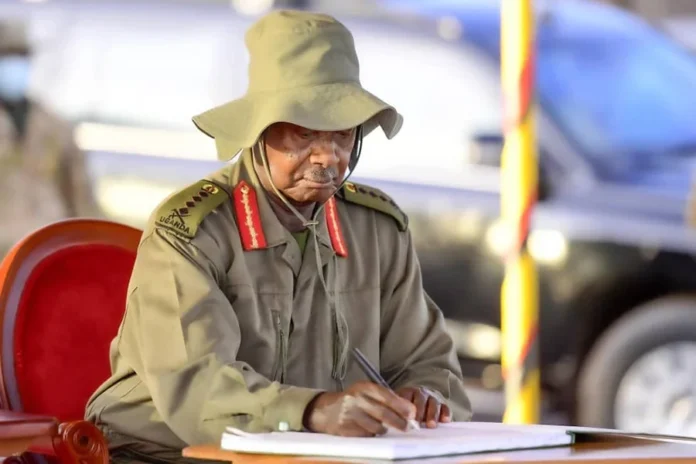President Museveni has urged Eastern and Southern African nations to strengthen regional collaboration in combating money laundering and the financing of terrorism, warning that financial crimes pose a direct threat to national security, economic stability, and development.
Speaking at the opening of the Eastern and Southern Africa Anti-Money Laundering Group (ESAAMLG) meeting, Museveni emphasized the urgent need for coordinated efforts to dismantle illicit financial networks.
“Money laundering and the financing of terrorism are not mere financial crimes. They undermine trust in financial systems, discourage investment, and support criminal networks that destabilize our societies,” Museveni stated.
He highlighted that Africa loses billions of dollars annually due to illicit financial flows, mainly through organized crime, corruption, and tax evasion.
The President commended ESAAMLG and the Financial Action Task Force (FATF) for their continued efforts in pushing for stronger Anti-Money Laundering (AML) and Combating the Financing of Terrorism (CFT) measures.
Museveni warned that terrorist groups like Al-Shabaab and the Islamic State (IS) exploit weaknesses in financial systems to fund their activities.
He also noted that the rapid digitalization of financial transactions has created new vulnerabilities, with extremist groups increasingly using online platforms for recruitment and fundraising.
“The Eastern and Southern African region faces threats from terrorist groups, including Al-Shabaab and IS. Digitalization in Sub-Saharan Africa has opened up new avenues for these groups to radicalize and fundraise online, presenting fresh challenges for counter-terrorism efforts,” he said.
The Ugandan leader emphasized that combating financial crimes requires constant vigilance, given that criminals continuously adapt their methods to evade detection.
Museveni reaffirmed Uganda’s commitment to fighting money laundering and terrorism financing, highlighting the country’s legal and institutional reforms that contributed to its removal from the FATF “grey list” in 2024.
“Uganda, like other ESAAMLG member states, has undertaken significant steps to combat these threats. We have strengthened our legal frameworks, built robust institutions, and enhanced intelligence-sharing with regional and international partners,” he stated.
He also stressed the importance of Africa’s economic independence, urging regional governments to focus on industrialization and value addition rather than exporting raw materials.
“Africa remains vulnerable to economic and political exploitation. To change this, we must transition from exporting raw materials to industrial production. This will create jobs, grow our economies, and strengthen our position in the global market,” he added.
Museveni concluded by urging ESAAMLG member states to prioritize unity, economic integration, and infrastructural development to strengthen Africa’s resilience against financial crimes.
“As a community, we must work together to secure the integrity of the global financial system. Uganda remains fully committed to the ESAAMLG agenda and will continue supporting initiatives that promote financial security and economic stability,” he affirmed.
The ESAAMLG meeting brought together regional leaders, financial regulators, and international partners to discuss measures for strengthening the fight against money laundering and terrorism financing across Eastern and Southern Africa.



















